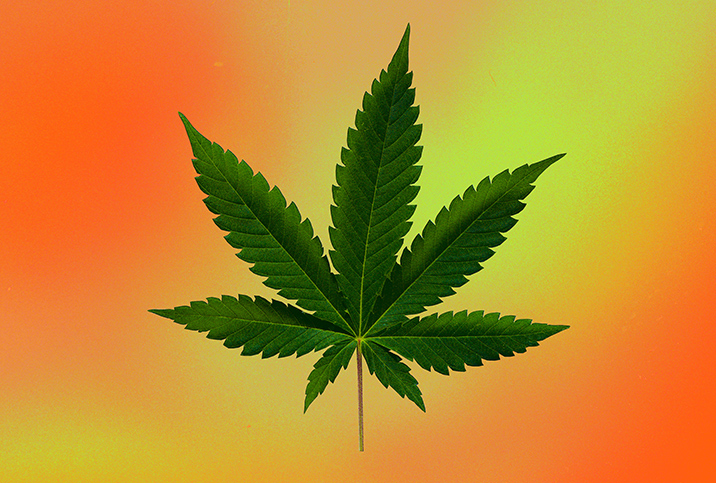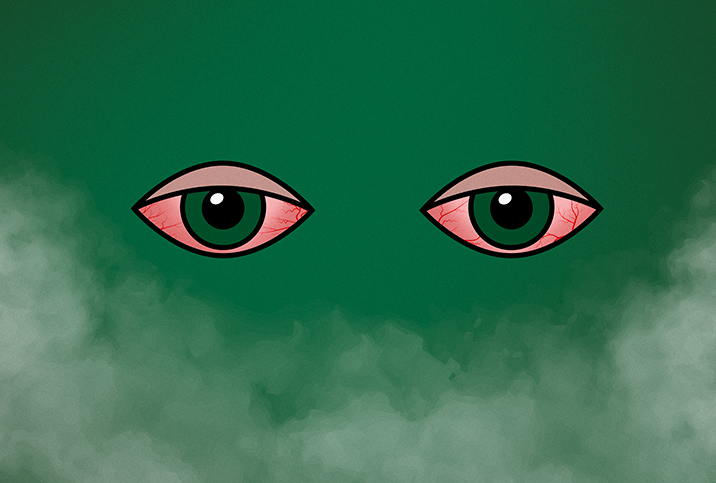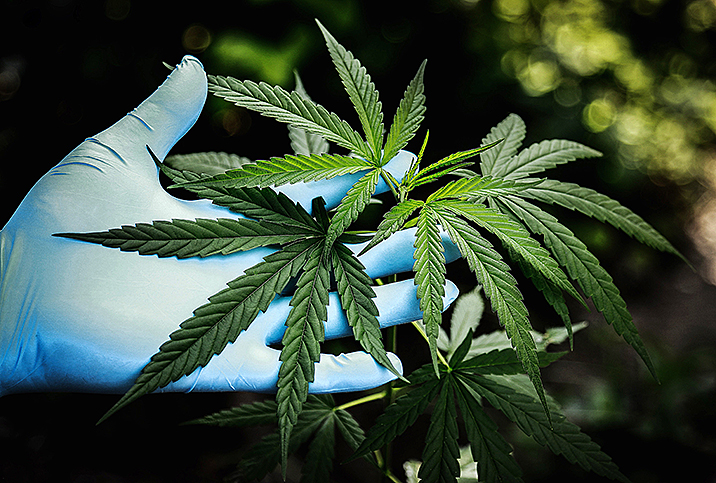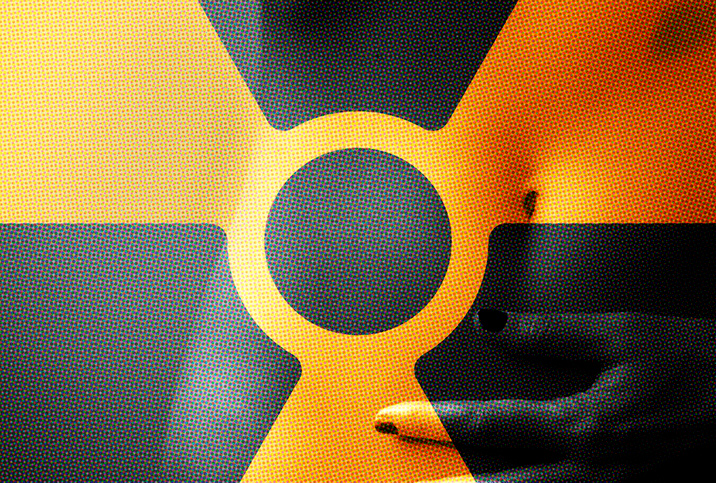Marijuana May Make Conception More Difficult

Cannabis legalization shows no signs of slowing its hazy journey into the mainstream. Three-fourths of states have legalized the medical use of cannabis, while 19 have legalized it for recreational use.
Another 10 states have legalized at least some form of CBD, or cannabidiol, a cannabis derivative that some studies indicate provides relief for all manner of pain issues, anxiety, seizures and PTSD. It may even spice up your sex life—all without marijuana's mind-altering ingredient, tetrahydrocannabinol (THC).
But sifting through the plethora of studies on marijuana's effects on your health can be a daunting task.
For instance: What about guys trying to conceive? Are there any dangers to occasionally smoking a little weed or enjoying an edible if you're trying to get pregnant? Is weed maybe even beneficial for male fertility?
Male fertility or swimming upstream
When a man is tested for possible fertility issues, specialists look at a number of factors, including:
- Semen volume: How much semen do you produce?
- Sperm concentration: How high or low is your sperm count? About 15 million sperm per milliliter of semen is average, according to the World Health Organization.
- Vitality: What percentage of the sperm are alive?
- Motility: How well and how many of the sperm move? Sixty-three percent motility is the minimum for fertility, the WHO states.
- Morphology: Are the sperm shaped correctly? A baseline of 12 percent of sperm with normal size and shape is considered fertile.
These criteria form the core data that fertility specialists rely on to give guys a clearer picture of their chances of conceiving.
The complex dance
While it's true countless couples have discovered, to their chagrin, how easy it can be to make a baby accidentally, reproduction is actually an incredibly complicated process.
Creating healthy sperm requires a whole host of bodily functions to operate, and perhaps the most important among them is the production of the sex hormone testosterone.
"Marijuana may lead to decreased fertility, in part, due to hormonal changes," said William Brant, M.D., the chief of urology at the Salt Lake City Veteran Affairs Medical Center.
Indeed, one primate study published in 2022 in the journal Fertility and Sterility produced evidence that chronic use of marijuana may lead to testicular atrophy, though these results have not been replicated in human trials.
According to the authors of "Adverse Effects of Cannabis on Male Reproduction," a 2018 study published in the journal Andrology, "most studies associate cannabis use with lower sperm concentrations, suggesting a negative impact on fertility potential."
However, as with most medical research—especially marijuana clinical trials, which have been hampered for decades by federal law—different studies can often yield different results.
"It's funny, this became a hot topic a few months ago," said Neel Parekh, M.D., a fertility specialist with Cleveland Clinic. "A colleague of mine at the University of Washington recently published a prospective study looking at infertility and marijuana use. It was 400 patients, so pretty good-sized, and definitely one of the few prospective studies looking at this issue."
The study followed men who went to fertility clinics looking for fertility checkups. Researchers evaluated the men's semen volume, sperm morphology, concentration and motility alongside their marijuana use, whether they were current or past users, or had never used it. Over the course of nearly a year, the study found the group that smoked marijuana had a significantly higher likelihood of abnormal sperm morphology, as well as lower semen volume.
However, there was a surprise in store regarding other parameters: Men who had never used marijuana had lower sperm motility than men who had used marijuana, either currently or in the past.
"Obviously, there's a lot of variables that come into play," Parekh explained. "They didn't control for a lot of other things, like people who use other substances that they could be abusing at the same time; there's a lot of different environmental factors [and] dietary factors that could have an impact. That's what's kind of frustrating, is none of the studies get the same results."
At the end of the day, however, trying to read the tea leaves of various marijuana studies and parse out the risks versus benefits for male fertility may not be where your energy is best spent.
For example, the men in the study who had used marijuana and had more abnormal sperm morphology and reduced semen volume may not be in dire trouble.
"Those two values, it's not like earth-shattering or anything like that," Parekh said. "It is evidence that current or past use can affect sperm parameters. But that's not to say it would affect the ability to get pregnant, necessarily."
Conclusions
Cannabis has long been used to reduce nausea and boost appetite, and studies too numerous to list have indicated it can help reduce inflammation and pain, lower blood pressure, help prevent relapse for drug and alcohol addicts, treat post-traumatic stress disorder and reduce anxiety.
However, researchers and frontline healthcare providers alike suggest taking this information with a grain of salt. Contradictory studies pop up all the time for all manner of issues, those concentrated on marijuana perhaps more than most.
"In my practice, [marijuana is] not something I routinely talk about," Parekh said. "I harp on smoking, vaping, that sort of stuff. There's a lot more evidence as far as the negative effects of tobacco and nicotine. Binge drinking, there's a little more definitive evidence to that than marijuana. With marijuana, there's nothing conclusive."




















